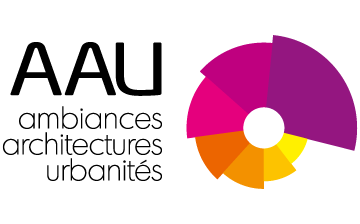ERC ANTIGONE : Archaeology of shariNg pracTIces: the material evidence of mountain marGinalisatiON in Europe (18th- 21st c. AD)
Financement : H2020-EU.1.1. - EXCELLENT SCIENCE - European Research Council (ERC)
Responsable(s) scientifique : Anna Maria Stagno Universita degli Studi di Genova. AAU-CRENAU Nathan Brenu, for the Work Package Oral History / Environmental History.
Contrat de recherche débuté en juin 2023
FR
L’objectif du projet ANTIGONE est d’analyser le rôle de la disparition des pratiques de gestion collective des ressources dans l’abandon et la marginalisation culturelle et politique des montagnes européennes depuis le XVIIIe siècle. Les effets de ces processus sont évidents au niveau démographique et en regard de la progressive disparition du patrimoine naturel et culturel des aires concernées, malgré une certaine hétérogénéité qu’il s’agit aussi d’interroger. ANTIGONE vise à analyser la période s’étendant du XVIIIe siècle à nos jours à travers une approche qualitative et foncièrement interdisciplinaire. Sur la base d’enquêtes archéologiques, archivistiques, archéologico-environnementales et d’histoire orale, et un travail de comparaison de cas d’études issus de différentes aires de montagnes européennes, traités à l’échelle locale, ANTIGONE questionne les apparentes améliorations des pratiques de gestion des ressources introduites par les rationalisations du XIXe siècle et par les modernisations du XXe siècle. En plus des transformations techniques induites, celles-ci n’auraient-elles pas également impliqué un déclin du partage des tâches, du temps et de l’espace, tout en ayant d’importantes conséquences sociales, paysagères et environnementales ? Partant d’une telle approche, ANTIGONE cherchera enfin à tracer de nouvelles perspectives sur la base d’une analyse critique des politiques actuelles de patrimonialisation des montagnes, qui ne semblent pas pour le moment plus efficaces que les politiques précédentes.
Pour le Work Package Oral History / Environmental History, dont Nathan BRENU est responsable depuis juin 2023, l s’agit de mener des enquêtes en histoire orale sur les métamorphoses environnementales, sociales et paysagères dans diverses aires de montagne (Haute-Cerdagne, Sierra Nevada, Apennins ligures). Les enregistrements ainsi accumulés permettront de constituer des archives orales de l’environnement et du paysage. Il s’agit aussi de mener une réflexion méthodologique sur la valeur du témoignage oral (et donc du sensible, de la mémoire des lieux), mais aussi de ses spécificités, dans l’étude des évolutions territoriales, tout en assurant le travail nécessaire de croisement des sources (archives écrites, archéologie du bâti, archéologie environnementale et du paysage).
Informations : https://cordis.europa.eu/project/id/853539/fr
Durée totale du projet : 5 ans (novembre 2020-octobre 2025)
EN
The main aim of the ANTIGONE project is to investigate how the disappearance of practices for managing shared environmental resources played a role in the abandonment and political marginalisation of European mountain areas from the 18th c onwards. The legacy of these processes can be seen in population levels in these areas, and in the worsening of their natural and cultural heritage. Current policies – aiming to promote their ‘heritagisation’ – do not seem likely to be more effective, in the long-term, as development interventions than the drive for rationalisation in the 19th c. and modernisation in the 20th c. A new historical perspective is needed which addresses the process of abandonment and marginalisation in its entire complexity. ANTIGONE will analyse the critical period from the 18th to the 21st c. and provide new insights into the links between individuals, communities, central States and landscape, grounded in a new understanding of the relationship between practices, resources and objects.
By means of archaeological, historical, environmental, ethnological analyses, and through the comparison of case studies from European mountain areas, ANTIGONE aims to verify if alleged ‘improvement’ practices involved not just changes in management technique, but also contributed to decline in the sharing of work, time and space, with knock-on effects on the social dimension of the whole historic system.
Through its multidisciplinary approach ANTIGONE aims at provide: new knowledge on the historical mechanisms underlying the abandonment of mountain and, more broadly, rural areas, as a key to understanding marginalisation; new knowledge on landscapes, practices and their features; a new methodological toolbox for interdisciplinary investigations driven by archaeology; a new role for archaeology, beyond the acknowledged one as a heritage science; new contributions to community based policies for local sustainable development and landscape management.
The Oral History/Environmental History Work Programme, headed by Nathan BRENU since June 2023, will carry out oral history surveys on environmental, social and landscape metamorphoses in various mountain areas (Haute-Cerdagne, Sierra Nevada, Ligurian Apennines). The accumulated recordings will be used to create an oral archive of the environment and landscape. The aim is also to develop a methodological approach concerning the value of oral testimony (and therefore of the sensibility and memory of places), as well as its specific features, in the study of territorial evolutions, while ensuring the necessary cross-fertilization of sources (written archives, archaeology of the built environment, environmental and landscape archaeology).
Information: https://cordis.europa.eu/project/id/853539/fr
Total project duration: 5 years (November 2020-October 2025)
